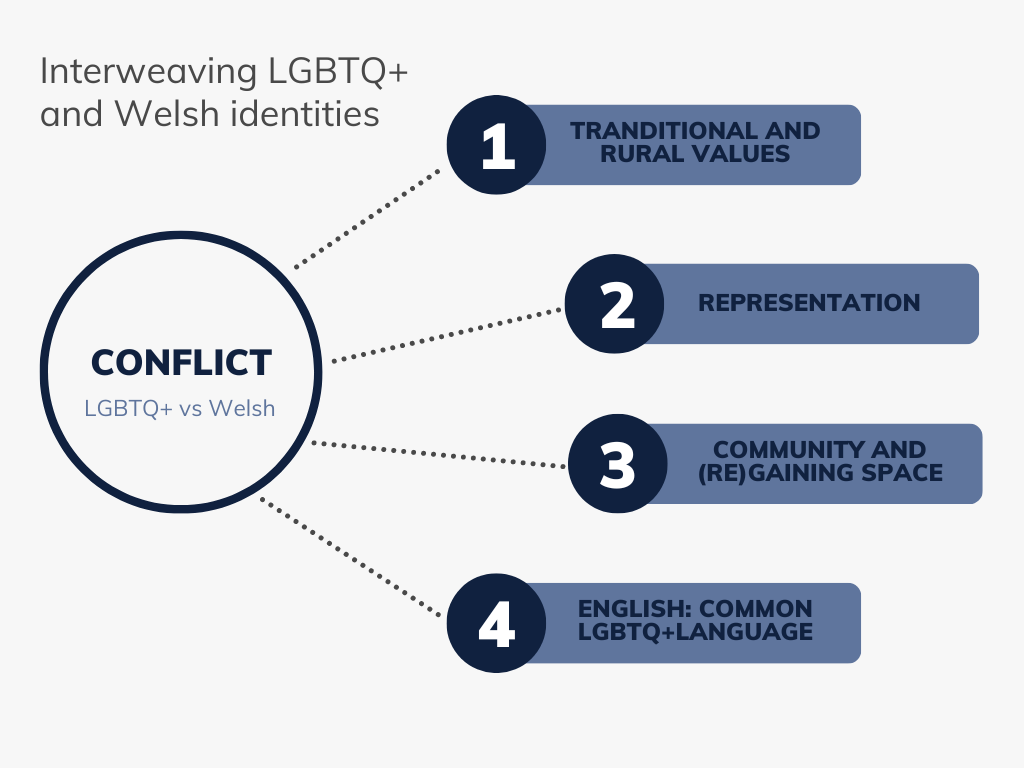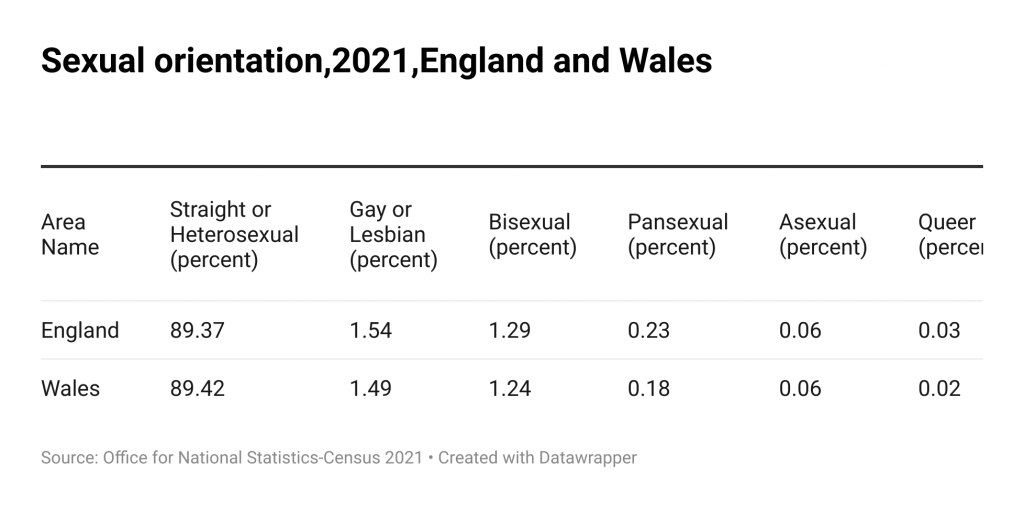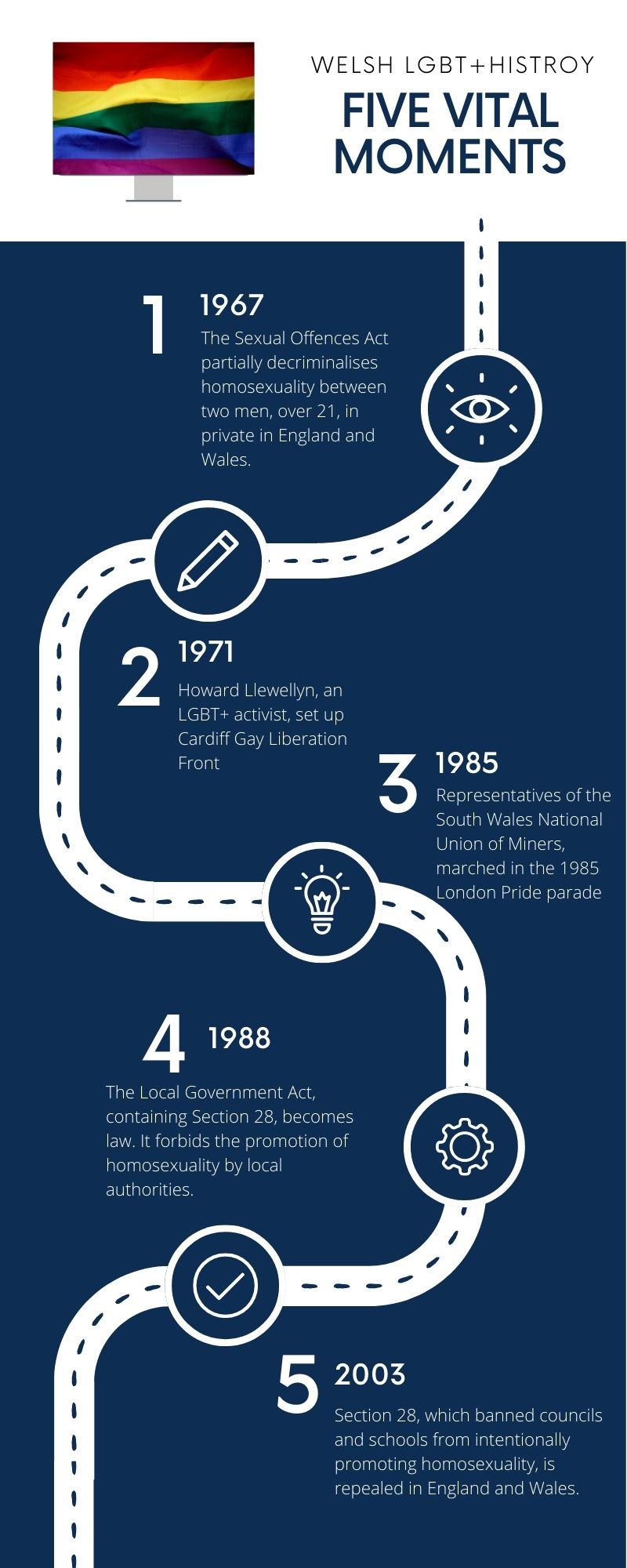Intersecting identities were highlighted in Wales during LGBTQ+ history month. Why is the next frontier for promoting equality?

The Welsh government sets out ambitious plan on 7 February 2023, “with hope at its heart” to reach goal of becoming the most LGBTQ+ friendly nation in Europe.
But for John Evans, even though he can find and get connections with LGBT+ friends in Cardiff, there was still a gap.
“I only feel a little bit more belonging when interacting with LGBT+ who also speak Welsh, I feel that we have had similar experiences and upbringings that we can talk about,” said John.

Finding a community where Welsh speakers can be open and speak entirely in Welsh can be tricky. Representation is important, according to Dr Jonathan Morris from School of Welsh, who has just led research investigating the experiences and challenges of LGBTQ+ speakers of Welsh.

The cross of the two minority identities reveals a vital frontier in promoting LGBT+ equalities–the intersecting identities, referring to someone with more than one protected characteristic, such as sexual orientation, race, disability, and religion.

“For people with intersecting identities, their discrimination multiplies,” said one ambassador from Pride Cymru. “For example, black transgender women are more likely to face discrimination than white cisgender men because they are likely to face discrimination on every trait, or even all at once.”
The Welsh Government has worked with a wide range of LGBTQ+ communities and organisations and launches the LGBTQ+ Action Plan for Wales during LGBT+ history month, which emphasizes that LGBTQ+ inequalities should not be addressed in isolation and intersecting needs are rising.
“When many people look at LGBTQ+ issues, they only see the LGBTQ-ness of the people and they don’t recognise that we are citizens alongside everyone else,” said Lisa Power, a lifelong LGBTQ+ activist who co-founded Stonewall. “This Plan recognises that being LGBTQ+ is part of a more complex and often intersectional identity and that all kinds of matters affect us across our life.”

The LGBTQ+ Action Plan intends to implement alongside other plans and initiatives, such as the Anti-racist Wales Action Plan, Framework for Action on Disability. For example, Sexual Violence National Strategy 2022 to 2026 aims to take action to tackle violence, gender inequality and misogyny head on gender-based violence, misogyny, and sexism remain issues faced by many LGBTQ+ people.

“I do hope more events can be created for LGBT+ Welsh speakers specifically and other intersecting areas,” said John. “The Welsh Government should continue supporting intersecting identities like healthcare and support for trans people, and more support is needed to help grow and maintain local Welsh charities such GlitterCymru.”

